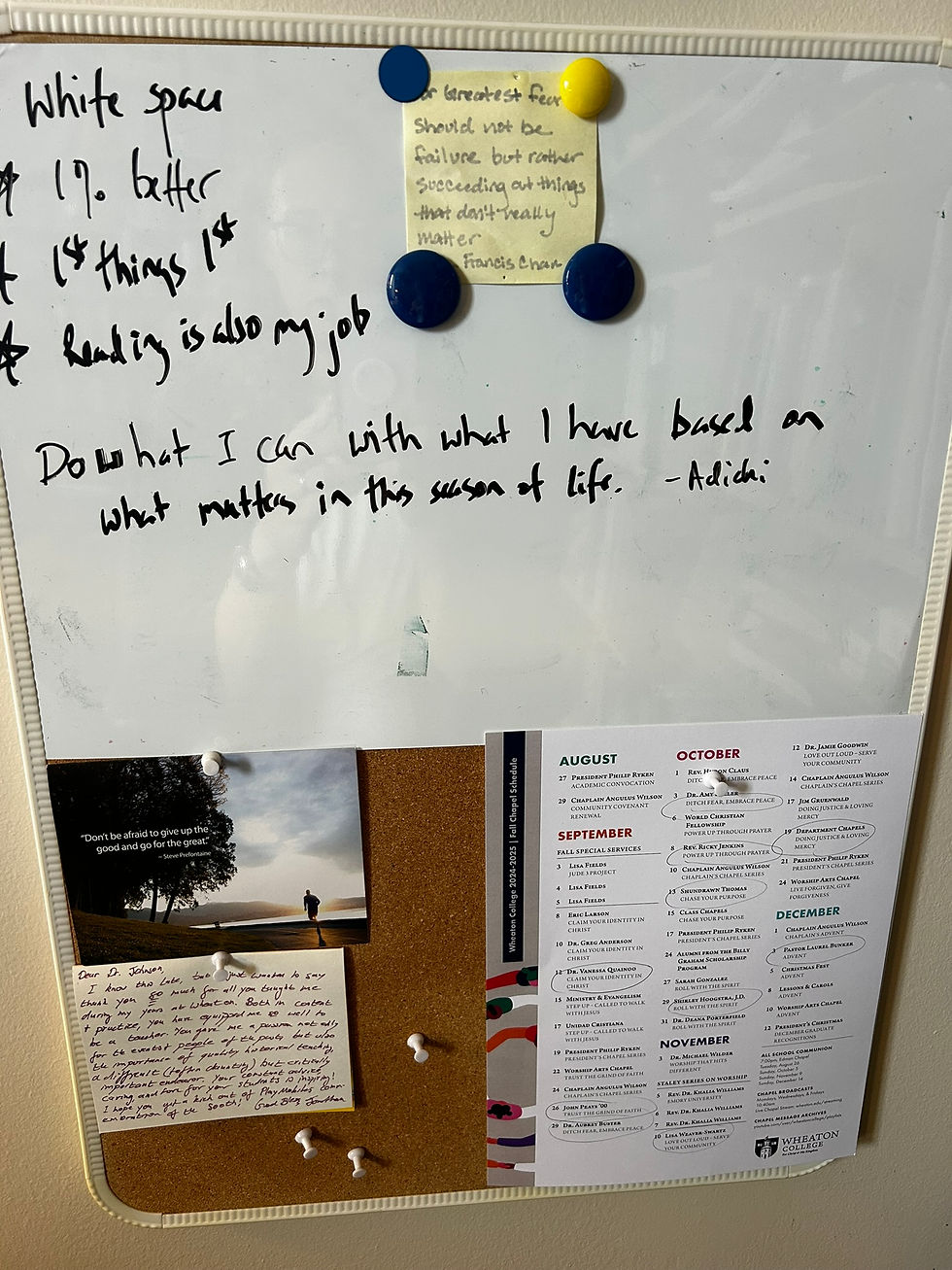Is Slowing Down the Key to Joining God in God's Work?
- karenjohnson52
- Feb 6, 2025
- 3 min read
Slow down. Your value is not in what you produce.
Last semester I was teaching on Taylorism, the scientific management of production processes designed to maximize efficiency. We were tracing Taylorism's influence on white evangelicalism and connection to the rise of an approach to sports that emphasized the coach's expertise as he maximized each player to reach the end goal of winning (women's sports history has a different flavor). In the early days of muscular Christianity in the late 19th century, when evangelical men embraced sports for their ability to develop character and reach people with the gospel, winning the game was not the primary goal of sports (maybe more on this later). But winning became the goal and efficiency and expertise became the means.

Maximizing my own processes has been a key frame I have used to approach my daily life, trying to squeeze the most out of every moment. As a mom of four kids who is working outside the home, there's a need for that. But part of the beauty of studying history is that it allows us to have a historical consciousness. In this case, I can see how the notion of efficiency being one of the highest goods is a historical development, and not a universal truth. My context shapes me, and I have prioritized efficiency without thinking deeply about it. But studying history helped me to historicize it.
The work of God is not always efficient. I think of Catherine de Hueck, who I write about in Ordinary Heroes (forthcoming in July, 2025), and what she called her "chit chat apostolate." Catherine was a refugee from the Russian revolution who lived in Harlem for several years in the 1930s and 1940s. Harlem was home to many African Americans who had moved north during the Great Migration, and was a center of Black cultural life. Catherine founded an interracial settlement house called Friendship House, which she used for what she called interracial justice. By this, Catherine meant calling white Catholics to work with, not for, Black Americans to end the systemic and individual effects of racism in America. She watched white Communists in America work for racial justice, understood Communists as drawing people away from Christianity, and wanted to counter Communists' work with a full application of the Gospel. Catherine had a full life--she describes the constant busyness of meeting needs, hosting study groups, writing to donors, traveling, giving talks, and all the other things she did. But she also walked around her neighborhood, going to Mass daily among other things. As she walked, she stopped and talked, chit chatting with her neighbors. This was inefficient. But she understood the duty of God to be the duty of the moment.
Catherine loved to read her fellow Russian Leo Tolstoy. Tolstoy's "The Three Questions" is helpful for determining what matters most, efficiency of presence. It is a story of a king wanting to maximize his impact, and asking these three questions: what is the right time, who are the right people, and what is the most important thing to do. The king saves his own life almost by accident when he cares for an injured man who was planning to murder him. The king learns that the right time is now, that he ought to pay attention to the person in front of him and do good.
Of course, life is more complicated than what I've described. Efficiency can be a blessing. But it cannot become our highest good. And I am grateful for opportunities to resist that norm.
Here's a five minute link from ABC's documentary The Century about the US in the 20th century explaining what Taylorism is.
Here's a link from Plough with the Tolstoy story. Plough is a magazine that is part of the anabaptist tradition. It's publishing house is the Bruderhof. I received the gift of getting to know some members of the Bruderhof when I was staying at Koinonia Farm doing research.


Comments